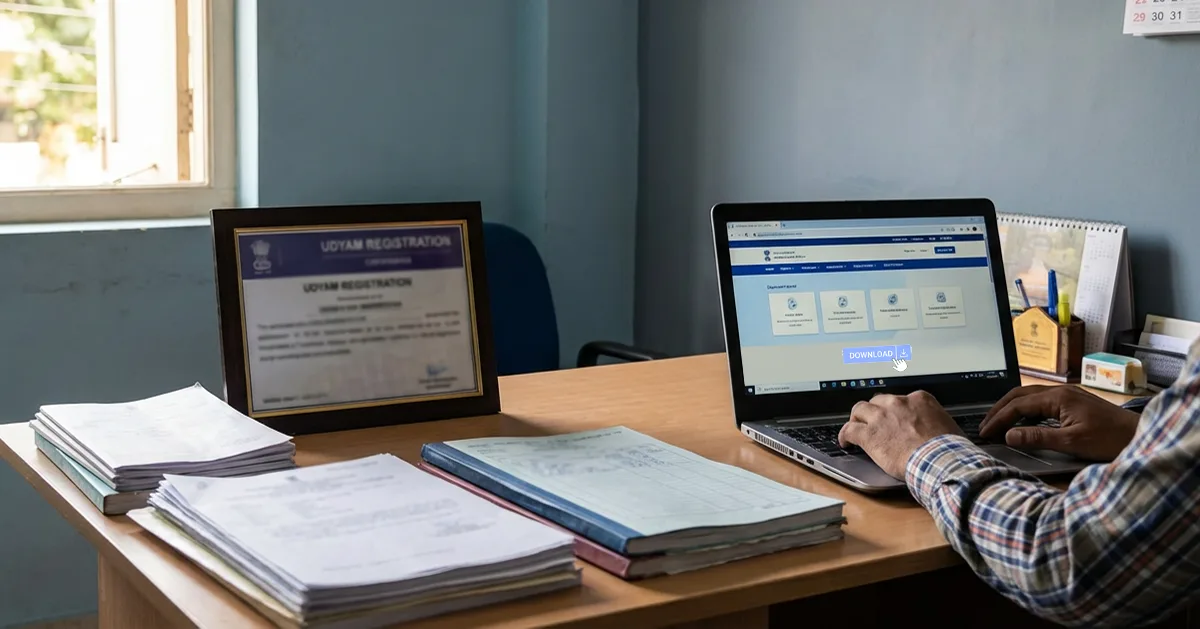
The Director Identification Number (DIN) is a unique, eight-digit number issued by the Ministry of Corporate Affairs (MCA) to individuals who aspire to become directors in India. The MCA allots a DIN once, and it then serves as a lifetime identification number.
The Companies Act, 2013, makes it mandatory to obtain a DIN. Individuals must get a DIN before they can be appointed as directors in Private Limited Companies, Public Limited Companies, or designated partners in LLPs. Moreover, the DIN system ensures compliance, streamlines governance, and establishes transparency by uniquely identifying each director.
Beyond compliance, the purpose of a DIN is to bring uniformity and legitimacy to corporate governance in India. It also enables regulatory authorities to track directors and ensure adherence to laws.
Key highlights of DIN include:
- Mandatory: Every individual must obtain a DIN before becoming a director in an Indian company.
- Uniqueness: The MCA allots one DIN to each individual, and it remains valid across all companies.
- Transparency: Regulatory agencies can track directors effectively, ensuring smooth compliance with applicable laws.
Key Benefits of DIN
A DIN strengthens corporate governance by creating accountability and transparency. Beyond being a legal requirement, it offers several practical benefits for both directors and regulatory authorities:
- Ensures Transparency: By confirming each director’s identity, the DIN makes directors traceable and supports stronger governance.
- Tracks Compliance: Regulatory authorities rely on the DIN to monitor directors’ roles and records across multiple companies, ensuring consistent accountability.
- Prevents Fraud: Since every individual receives only one DIN, duplicate directorships are blocked, reducing the risk of fraud or misuse.
- Streamlines Processes: With a DIN, regulatory filings become faster, and approvals are simpler for businesses.
Legal Framework for DIN
The Companies Act, 2013, lays down the legal foundation for the DIN. This system allows the Act to enforce compliance, strengthen accountability, and promote transparency.
| Legal Provision | Details |
|---|---|
| Section 152(3) | Mandates that individuals must obtain a DIN before they can be appointed as directors. |
| Applicability | Covers directors of Private Limited Companies, Public Companies, and designated partners in LLPs. |
| Purpose in Corporate Governance | Prevents fraudulent practices by giving each director a unique identification. |
The MCA assigns a DIN to every director to ensure accountability and minimize risks of misuse or malpractice. In this way, the DIN system builds uniformity and strengthens corporate governance across India.
Who Needs a DIN?
Any individual who wants to become a company director in India must obtain a DIN.
| Category | Requirement |
|---|---|
| Aspiring Directors | Must obtain a DIN before appointment. |
| Existing Directors | Must update DIN details if they change personal information such as address or name. |
| LLP Designated Partners | Must hold a DIN (earlier called DPIN; MCA now treats both as the same). |
The MCA uses DIN to track directors and enforce compliance across all company types.
Documents Required for DIN Application
Applicants submit valid documents to prove identity and address, and the MCA verifies them before approving a DIN.
| Document Type | Examples |
|---|---|
| Proof of Identity | PAN Card for Indian nationals; Passport for foreign nationals. |
| Proof of Address | A recent passport-sized photograph of the applicant. |
| Photograph | Recent passport-sized photograph of the applicant. |
| Digital Signature Certificate (DSC) | Mandatory for submitting Form DIR-3 digitally. |
| Additional Documents | Applicants must notarize or apostille scanned passports and overseas address proof. |
How to Apply for DIN?
The DIN application process is straightforward, but accuracy is crucial. Here’s a step-by-step guide to complete it smoothly:
Step 1: Obtain a DSC
- Apply for a Digital Signature Certificate (DSC) from a certifying authority approved by MCA.
- Use this DSC to sign Form DIR-3 online.
Step 2: Fill Form DIR-3
- Next, log in to the MCA portal and download the latest version of Form DIR-3.
- Enter the required details, such as personal information, contact details, and educational qualifications.
- Attach scanned copies of your PAN, address proof, and recent photograph.
- If you are joining an existing company, attach the company’s CIN and a copy of the board resolution approving your appointment.
- Affix your DSC and the DSC of a practising professional (CA/CS/CMA) for certification.
Note: Individuals can get a DIN while incorporating a new company using the SPICe+ (INC-32) form. It registers the company and allots DINs for directors at the same time. This method is simple and saves time for new entrepreneurs.
Step 3: Pay the Fees
- Upload the form on the MCA portal.
- Pay the prescribed fee, as per the latest MCA rules.
- After payment, the system generates a Service Request Number (SRN) for tracking.
Step 4: Get Verified by the MCA
- Once you submit the application, the MCA verifies it for accuracy and completeness.
- The process typically takes about 1–2 working days.
- The MCA rejects applications when details mismatch, documents are missing, or the DSC has expired.
Step 5: Issuance of DIN
- Once the MCA approves your application, it allots your DIN.
- You will receive an email confirmation with the DIN details.
DIN for Directors in Existing Companies
When a director joins an existing company, they must apply for a DIN using Form DIR-3. To support the process, the company passes a board resolution and authorizes the application.
Directors who already hold a DIN need to keep it updated. Directors must report changes in personal details, such as name or address, through Form DIR-6.
In addition, every director has to complete the annual DIR-3 KYC by 30 September each year. If directors miss this deadline, the MCA deactivates the DIN and imposes a ₹5,000 penalty.
Maintaining accurate DIN records not only ensures compliance but also facilitates smooth communication with the MCA.
Common Mistakes to Avoid During DIN Application
The MCA may reject or delay DIN applications if errors are found. To secure quick approval, keep these points in mind:
- Submit accurate documents: Upload only valid and recent proofs. Ensure that details match across PAN, Aadhaar, and other records.
- Use a valid DSC: File the form with an active DSC issued in the applicant’s name.
- Attach proper attestation: Have documents attested by a practising CA/CS/CMA. If you are a foreign national, get them notarized or apostilled.
- Provide correct company details: For Form DIR-3, enter the correct CIN and attach a certified copy of the board resolution.
- Upload a clear photograph: Use a recent, high-resolution passport-size photo. The MCA rejects applications with blurred or mismatched photos.
- Update DIN details promptly: Directors should promptly report any change in name, address, or nationality through Form DIR-6.
- Complete annual KYC: Missing the deadline to file DIR-3 KYC leads to DIN deactivation and a ₹5,000 penalty.
- Avoid duplicate applications: Apply only once, as multiple applications for the same individual can trigger cancellation or legal issues.
Applicants who stay diligent during the application process reduce the risk of errors and rejections.
Conclusion
A DIN is essential for building trust and ensuring transparency in corporate governance. For aspiring directors, applying on time is the first step toward compliance, while existing directors must update their details promptly to stay aligned with MCA regulations. Moreover, accurate documentation and diligent adherence to the process help avoid unnecessary delays or penalties. Ultimately, a well-maintained DIN record supports seamless compliance and strengthens good governance.
Frequently Asked Questions
The MCA issues a DIN once, and it remains valid for a lifetime. However, directors must complete annual KYC to keep it active. If directors fail to complete KYC, the MCA deactivates the DIN until they restore compliance.




